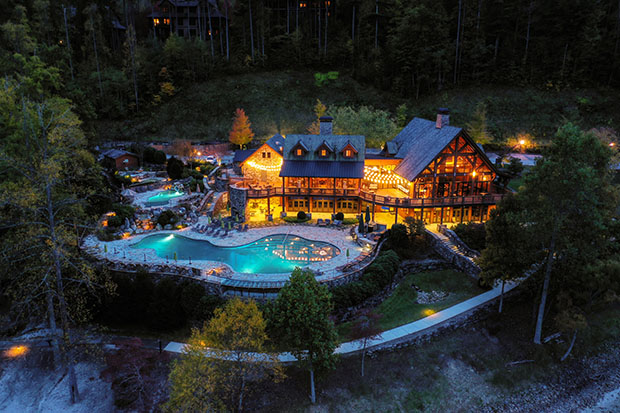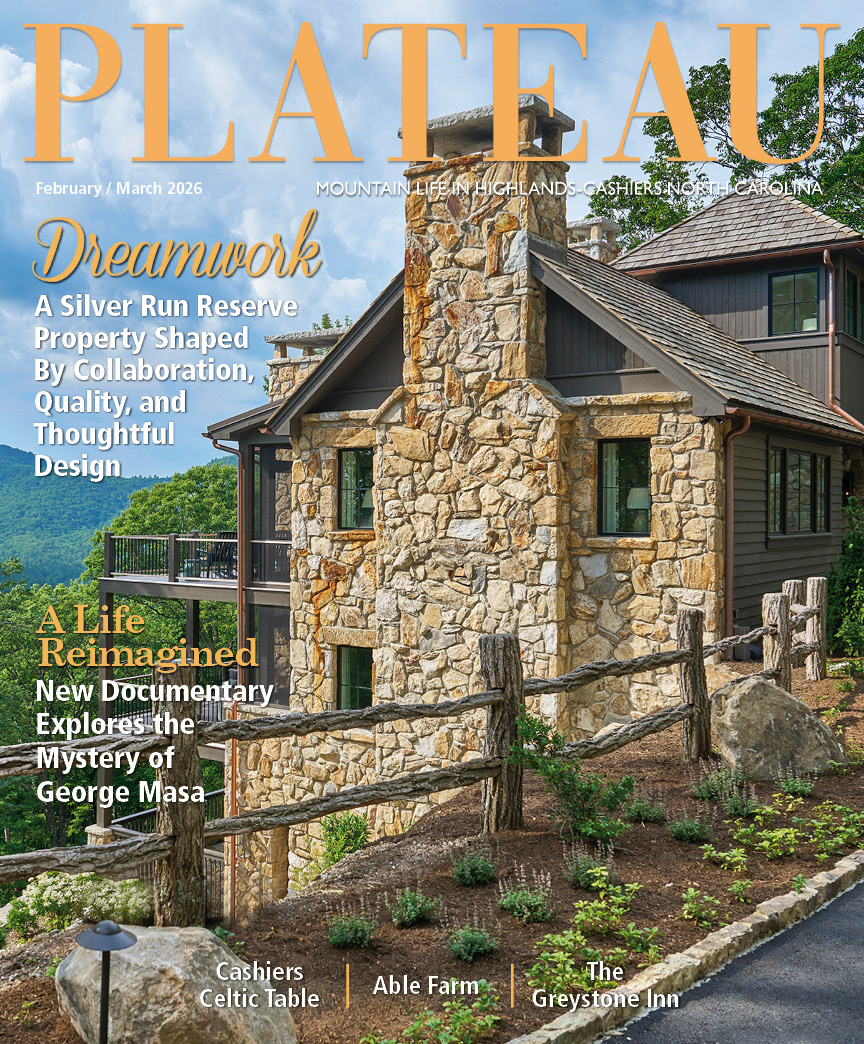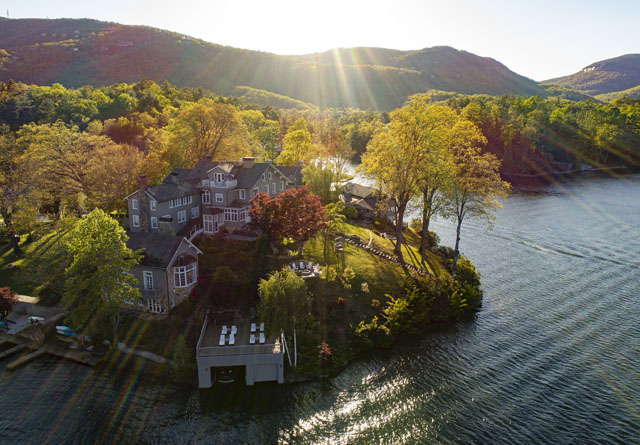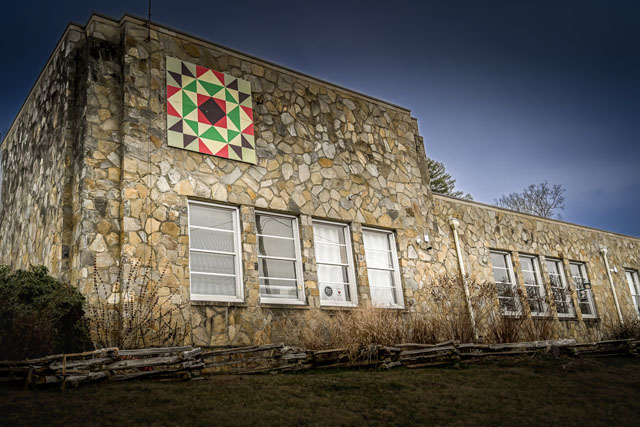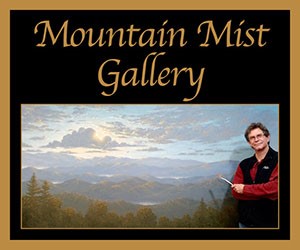Blending Art with Community
03 Apr 2020
How a lifelong love for the visual arts is leading Highlands’ The Bascom: A Center for the Visual Arts—and its community—forward
By CHRISTA MILLER
Since 1983, Highlands, NC’s The Bascom: A Center for the Visual Arts has been foundational to local and regional art and artists. Exhibitions, workshops, community events, and a permanent art collection have seen the independent nonprofit through substantial change, including the 2009 opening of its six-acre "green" campus. Entering the new decade, a brand-new strategic plan is being implemented, helmed by Executive Director Teresa Osborn.
A love for the arts and community
Osborn’s path to The Bascom began in Duluth, GA, where a lifelong love for the visual and performing arts led her to the Jacqueline Casey Hudgens Center for Art and Learning. Volunteering there led first to a leadership role as president of the organization’s new guild; then, ultimately, to the position of executive director.
After its previous director’s departure, Osborn shepherded the Hudgens through a successful turnaround. She wasn’t looking for a new role when a recruiter contacted her about The Bascom, but The Bascom had something the Hudgens didn’t: a location in the mountains, where Osborn and her husband had always wanted to live.
Osborn was already familiar with The Bascom. She and her family had visited the center in 2012 after board members came back from its grand opening with printed materials that impressed her. Three years later, Osborn joined The Bascom’s staff as executive director.
Born in Wilmington, NC, Osborn said the plateau has “absolutely” delivered on—even exceeded—her expectations. “My family loves the solitude in the mountains, the majesty,” she said. “I love the stillness and the quiet. You walk out and it’s breathtaking. It’s what brings us all here.”
“Us” includes the number of transplants to the plateau who have “chosen to be here because they love it,” Osborn said. What she loves most: what she calls “this extraordinary convergence of different people”—the blend of new arrivals with families who have lived in the area for generations. Their commitment to the community, she said, is “what allows The Bascom to be here.”
Strategic planning for the future of plateau art
Helping to guide The Bascom into the future is the Strategic Planning and Research Initiative, a program of the prestigious DeVos Institute of Arts Management at the University of Maryland. Its in-depth process encompassed a mix of surveys, interviews, and other research.
“As a small staff, we didn’t have the dedicated resources to drill down to that level,” said Osborn. “So they brought to us, for our consideration, the data on this region. What are [its] needs? What are [its] challenges?”
Among them: education and workforce development. “We are two hours away from a major metropolitan area,” Osborn explained, “and we don’t have the resources for our children or our adults that we would have if we lived in Asheville [NC] or Atlanta [GA] or Birmingham [AL].”
This was the information The Bascom’s board and staff needed to dream big. Looking at how the arts could make a positive impact on the community, board and staff members explored some paths they hadn’t previously considered—with a surprising discovery. “We realized that in some ways, we were already doing some of these things, just on a small scale,” Osborn explained.
A new Science, Technology, Engineering, Arts, and Mathematics (STEAM) program is already being designed in partnership with Macon County, NC schools, where students are studying the science of nearby streams. By including digital photography and even a pottery class with their academic studies, the students will learn key 21st century skills while working within their common core curriculum.
The Bascom’s ambitious programming strategy extends well beyond the schools and into the community. Over the next five years, workforce development and social enterprise programs will be developed, too.
In May, The Bascom will unveil a teacher professional development program complete with continuing education credits, which Osborn said is a challenge for teachers in rural northwestern Carolina. Two workshop intensives in a grant-funded pilot project will teach how to use art across history, science, math, and English, “not just art in art classes,” said Osborn.
Additionally, a social-enterprise program will help the artists in the region who want to make a living from their arts and crafts. Although this is likely to take another year or two to implement, Osborn said the main idea is to help artists learn how to market their art businesses.
These outcomes help to demonstrate why the DeVos Institute chose The Bascom as one of only five rural arts organizations in the nation to assist.
A blueprint for the future
Osborn’s personal experiences have taught her to be unafraid of change. “When you come out [of it], you’re going to come out stronger and better,” she explained, adding that a successful strategic plan involves board, staff, and in this case, also community input. “I think in the end, that’s why we’re here—how to… have the most impact on the community… that’s what The Bascom is about,” she said.
“We intend for this organization to be here for a long, long time—generations. This strategic plan is equipping the organization [with] the tools and a blueprint [that are] not dependent on me or the board or the staff that are here, [but that are] for the future…. I’m most proud that we are really poised for the future to be strong and vibrant and vital and relevant to this region for decades.”
Bio:
Teresa Osborn
Executive Director, The Bascom
Birthplace:
Wilmington, NC
Family:
Husband, Jim; children, son Michael (and wife Katie) daughter Catherine live in Atlanta and visit as often as they can
Education:
University of Georgia, BA, double major in English and Political Science; Vanderbilt University, PhD, Political Science
Hobbies:
Visiting museaums, watching British TV shows, cooking, reading, spending time with family


